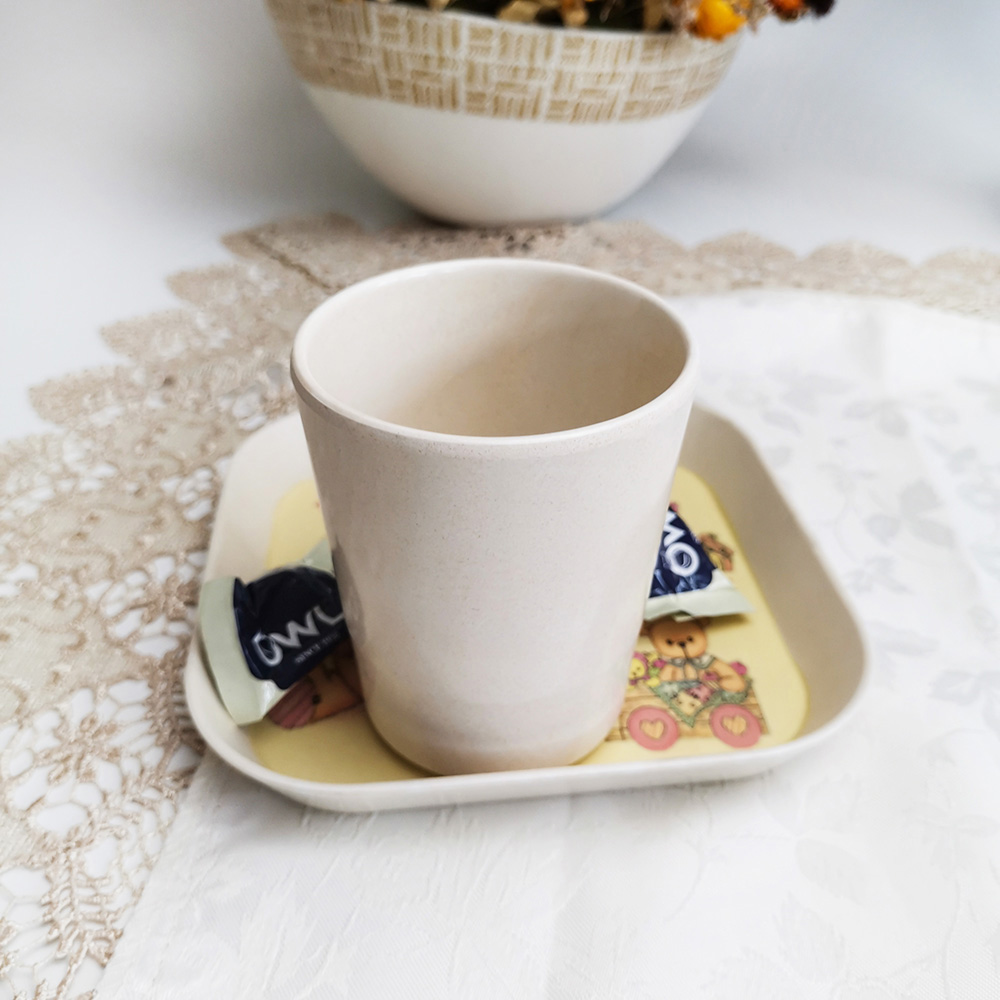Bamboo fiber color bowls have gained substantial popularity in recent years due to their eco-friendly nature and versatile usability. These bowls, made from sustainable materials like bamboo fiber, offer a multitude of advantages, making them a preferred choice for environmentally conscious consumers. Designing and manufacturing these bowls require a deep understanding of the unique properties of bamboo fiber, as well as the aesthetic and functional preferences of users.
1.Sustainable Material Utilization:
Bamboo fiber color bowls capitalize on the exceptional qualities of bamboo as a renewable resource. Bamboo grows at an astonishing rate, making it one of the most sustainable plant-based materials available. Unlike traditional plastic or ceramic bowls, which often rely on non-renewable resources, bamboo fiber color bowls represent a shift towards eco-friendly dining solutions. The use of bamboo fiber not only conserves valuable natural resources but also reduces the carbon footprint associated with traditional bowl manufacturing processes.
2.Biodegradability and Environmental Impact:
One of the key advantages of bamboo fiber color bowls is their biodegradability. Unlike conventional plastic bowls that can persist in landfills for centuries, bamboo fiber bowls naturally decompose, returning to the environment without causing long-lasting harm. This biodegradability significantly reduces the environmental impact of discarded bowls, aligning with the global push towards reducing plastic waste and promoting sustainable practices.
3.Design Flexibility and Aesthetics:
Designing bamboo fiber color bowls offers a wide spectrum of creative possibilities. Bamboo fibers can be molded into various shapes and sizes, allowing for innovative and aesthetically pleasing designs. The natural texture and color of bamboo fibers add a touch of elegance to these bowls, making them visually appealing to consumers. Manufacturers can experiment with different patterns, sizes, and color variations to cater to diverse consumer preferences, ensuring a vibrant market for eco-conscious dining ware.
4.Durability and Functionality:
Bamboo fiber color bowls are not only environmentally friendly but also durable and functional. Bamboo fibers, when properly processed, create bowls that are strong, lightweight, and resistant to cracks and chips. These bowls are suitable for both hot and cold foods, making them versatile for various culinary purposes. Their durability ensures a long lifespan, providing consumers with reliable and sustainable dining options for everyday use.
5.Safety and Health Benefits:
Bamboo fiber color bowls are generally free from harmful chemicals such as BPA, phthalates, and other toxins commonly found in traditional plastic products. This ensures that consumers can enjoy their meals without concerns about chemical leaching. Additionally, bamboo has natural antibacterial properties, enhancing the hygienic aspects of these bowls. The use of bamboo fiber aligns with health-conscious consumer preferences, contributing to the overall appeal of these eco-friendly dining solutions.
6.Customizability and Market Demand:
Manufacturers of bamboo fiber color bowls can cater to specific market demands by offering customization options. These bowls can be designed with various features such as lids, different sizes, and compartments, addressing specific user needs. Customizability ensures that the market remains diverse and dynamic, accommodating a wide range of preferences and requirements.
7.Educational and Awareness Impact:
The production and promotion of bamboo fiber color bowls also play a role in raising awareness about sustainable practices. By choosing bamboo fiber over traditional materials, manufacturers and consumers contribute to educating the public about the benefits of eco-friendly choices. This awareness, in turn, fosters a culture of sustainability, encouraging more people to make environmentally conscious decisions in their daily lives.
8.Cultivating Responsible Consumerism:
Sale Bamboo fiber color bowls exemplify the concept of responsible consumerism. By opting for products made from sustainable materials, consumers send a powerful message to the market. This demand for eco-friendly products drives manufacturers to innovate, invest in sustainable practices, and expand their offerings, creating a positive cycle that benefits both the environment and the economy.
In conclusion, designing and manufacturing bamboo fiber color bowls require a harmonious blend of creativity, technological expertise, and a deep commitment to environmental sustainability. These bowls not only offer functional and aesthetic benefits but also embody the ethos of responsible and eco-conscious living. By embracing bamboo fiber and other sustainable materials, manufacturers and consumers alike contribute to a greener future, where everyday products align with the principles of environmental stewardship."


 English
English 中文简体
中文简体 Español
Español








 No.8 Sanying Road, Jiangnan Street, Linhai City, Zhejiang, China
No.8 Sanying Road, Jiangnan Street, Linhai City, Zhejiang, China
 +86-13676659266
+86-13676659266 0576-85959968
0576-85959968
